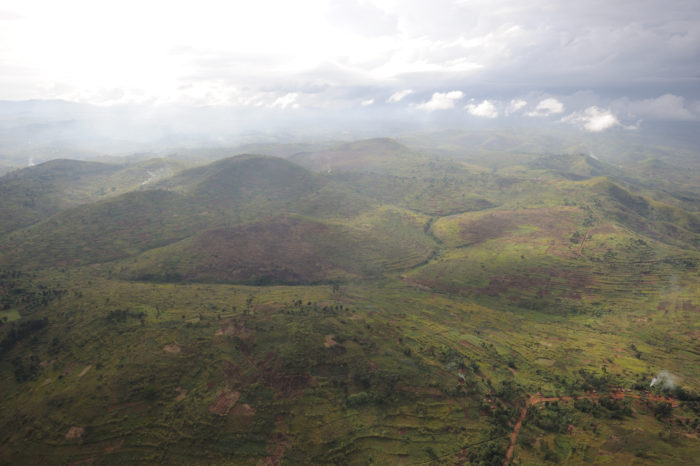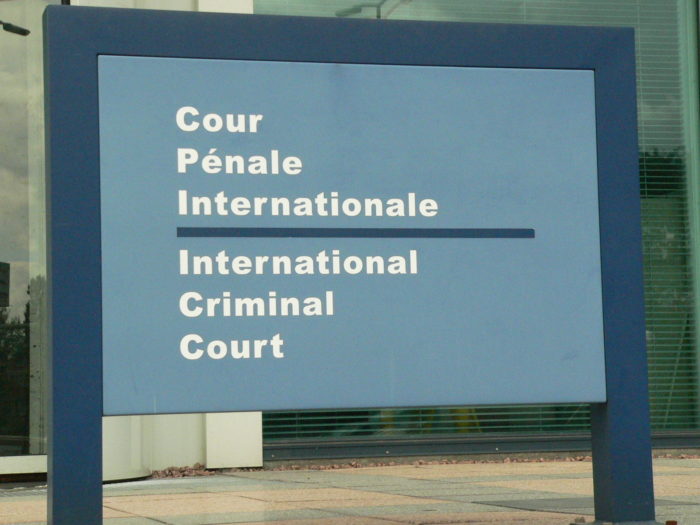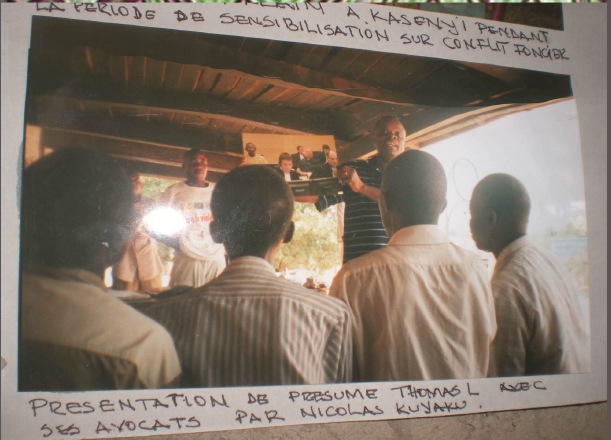Please note that this blog was previously posted on www.katangatrial.org Four months after being acquitted in the second trial verdict at the International Criminal Court (ICC), Mathieu Ngudjolo Chui is fighting to remain in Europe, having applied for asylum in the Netherlands. His claim is based on his contention that information he presented during his…
Please note that this blog was previously posted on www.katangatrial.org Dear readers – please find below a commentary written by Olivia Bueno at the International Refugee Rights Initiative (IRRI) in consultation with Congolese activists. The views and opinions expressed here do not necessarily reflect the views and opinions of the International Refugee Rights Initiative or…
On December 18, 2012, the ICC will announce the second verdict in its history against Mathieu Ngudjolo Chui. In contrast to the fear and anticipation which preceded the March verdict against Thomas Lubanga, this decision is being awaited quietly by people in the affected region of eastern DRC. Many opinion leaders are hesitant to…
Although it is relatively easy to start a war, it is much harder to sustain it – or at least to sustain it in any effective way. There is an assumption that what distinguishes war from anarchy is that people are fighting for something. Anarchy, on the other hand, is just that: anarchy. While what…
There is growing desolation and fear among Congolese refugees following the kidnapping of a well-known Congolese refugee, Mr. Avochi Nyipir Utwikende. His kidnapping enforces a feeling of insecurity among Congolese refugees who have long feared Ugandan security and their suspected collaboration with their Congolese counterparts. It is also seen as confirmation of rumors that there…
On July 10, 2012, the International Criminal Court (ICC) pronounced its first sentence – 14 years imprisonment – for Democratic Republic of Congo (DRC) militia leader Thomas Lubanga. On the ground in the DRC speculation is now turning to the next element of the proceedings – reparations. Chambers have indicated that they will pronounce…
The announcement on July 10 of the first sentence handed down by the International Criminal Court (ICC) in the case of Thomas Lubanga has sparked diverse responses in his home province of Ituri in the Democratic Republic of Congo (DRC). Although there are some that approve of the sentence, the decision has also been attacked…
Today is International Refugee day. It’s a day when officials visit refugee camps and refugees are made to sing and dance and look happy. It’s a day when they are supposed to express their gratitude to those who give them assistance. But refugees don’t want help or handouts. They want justice, they want fairness. They…
With somewhat predictable familiarity, we witness another round of violence and another round of displacement in eastern Democratic Republic of Congo’s North Kivu province. Make no mistake: what is happening in North Kivu has nothing to do with “tribalism”, or the idea that somehow Congo and the Congolese people are intrinsically violent – a racist…
On March 14, 2012, the International Criminal Court (ICC) issued the first verdict since it began operations 10 years ago in the case of Thomas Lubanga, a former militia leader from the region of Ituri in eastern Democratic Republic of Congo (DRC). Lubanga, whose forces had sought regional autonomy for Ituri, was convicted of conscripting…
The run up to the International Criminal Court (ICC) verdict in Ituri was marked by fear and anticipation, highlighted by rumors that the judgment would be favorable to Thomas Lubanga. Since the announcement of the verdict last week, there have been no major security incidents, but the mood remains tense and a serious national debate…
The run up to the International Criminal Court (ICC) verdict in Ituri was marked by fear and anticipation, highlighted by rumors that the judgment would be favorable to Thomas Lubanga. Since the announcement of the verdict last week, there have been no major security incidents, but the mood remains tense and a serious national debate…
On 14 March 2012, the International Criminal Court (ICC) will hand down its first verdict in the case of former rebel leader Thomas Lubanga of the Democratic Republic of Congo (DRC). As Iturians anxiously await the verdict, it is an opportune moment to reflect on the impact that the investigation and trial, alongside other activities…
The International Criminal Court (ICC) will announce its first verdict in the case of Thomas Lubanga, former leader of the Congolese rebel group, the Union des Patriots Congolais (UPC) tomorrow. In eastern DRC’s Ituri region, where Lubanga led the UPC and is accused of committing the crimes for which he is on trial, all eyes…
As the trial of Jean-Pierre Bemba started in The Hague on November 22, Kinshasa was abuzz with the news. Newspapers carried the story as front page news. “Bemba Giving Up His Ex” cried the full page cover of Le Soft, while La Prosperite read “Bemba Faces the Judges.” Congolese television broadcast the opening statements in…
On August 26, 2011, the International Criminal Court (ICC) Appeals Chamber ruled that three witnesses, who had been called to The Hague to testify for the defense in the Katanga case, could, in principle, be returned to the Democratic Republic of Congo (DRC). Prior to their transfer to The Hague, the three former militia leaders…
Rumor and speculation are rife in eastern Democratic Republic of Congo’s (DRC) North Kivu province regarding the anticipated return of Congolese refugees from Rwanda. Sparked by the signing of a tripartite agreement between the governments of the DRC, Rwanda and UNHCR in February 2010, feelings of hostility towards the idea of their “return” are widespread….
As Congolese head to the polls on November 28, 2011 to elect a new president, the front-running opposition candidate in the previous election, Jean-Pierre Bemba, sits in a jail cell in Schevingen in the custody of the International Criminal Court (ICC). Bemba has not, however, taken his incarceration to mean that he should be sidelined…
In Ituri, victims of atrocities committed in the context of the 2002-2003 violence, which claimed an estimated 50,000 lives, and the civil society organisations that represent them have been calling out for a full accounting for crimes committed, emphasizing their right to both understand the particular individual and institutional drivers of the conflict and for…


